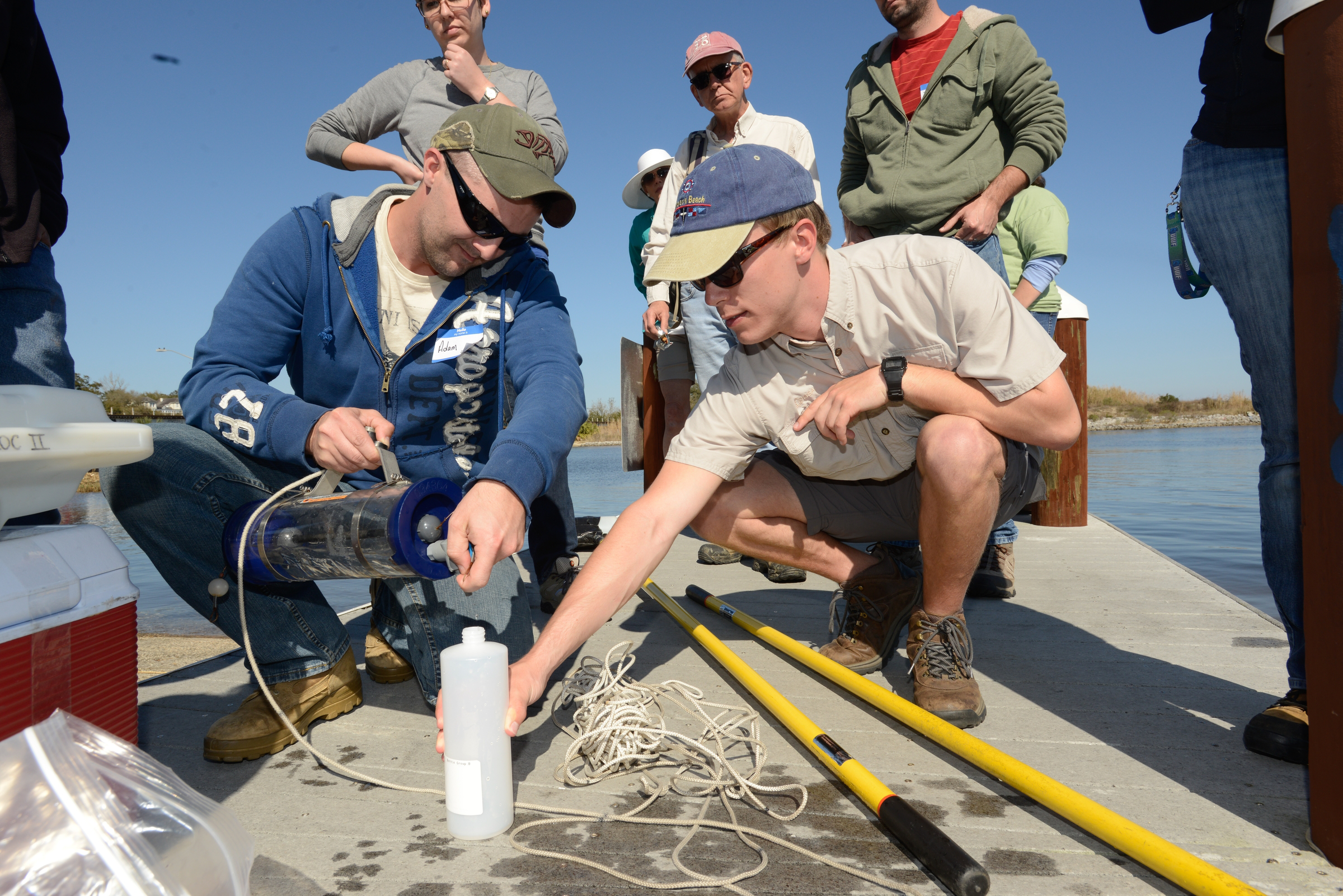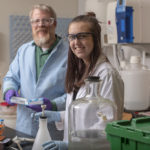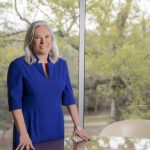UWF Breaks the Mold in Active Learning in Higher Education, Makes Graduates “Career Ready”

There’s a buzz in higher education, a hot topic that we’re all talking about: active learning in higher education.
We want to know how to best prepare our students to face the challenges and demands of a 21st Century global society. This generation of students must work together on solutions for climate change, water pollution, income inequality, terrorism, racism and world hunger. We talk about making students “career ready”—prepared and able to collaboratively tackle the big issues. But what does that really mean?
Defined by the National Association of Colleges and Employers, career readiness is “the attainment and demonstration of requisite competencies that broadly prepare college graduates for a successful transition into the workplace.”
These competencies are critical thinking and problem solving; oral and written communications; teamwork and collaboration; digital technology; leadership; professionalism and work ethic; career management; and global and intercultural fluency.
Active learning at UWF
UWF’s Career Development & Community Engagement office uses the career development model of Explore, Discover, Prepare and Implement that encourages students to gain a diverse set of abilities by participating in active learning methods. Through each phase, active and experiential learning strategies such as intensive writing courses, undergraduate research, service-learning, living-learning communities, internships and job shadowing, are incorporated and highly encouraged.
Research suggests that students who engage in two or more of these active learning strategies have higher GPAs and exhibit a decrease in time to obtain an undergraduate degree. Participation in high-impact practices supports success in academics, builds early professional experience and provides students with a clear path toward career interests and developing a professional network.
This means that at UWF, we believe experience opens doors. We’ve made it a cornerstone of every student’s experience here. Experiential learning throughout the undergraduate experience is something we excel at, and it sets us apart from larger universities.
Focusing on professional communication skill development through high impact practices
UWF’s Quality Enhancement Plan (QEP) for 2016-20 is a direct example of this emerging culture on campus. As part of the reaffirmation process for The Southern Association of Colleges and Schools Commission on Colleges, UWF was tasked with developing a plan to enhance student learning or the learning environment. After listening to a diverse array of stakeholders and analyzing institutional data, we determined that professional communication skill development through the use of high-impact practices should be our QEP focus.
“Communication for Professional Success” seeks to revolutionize the educational experience for UWF students. This five-year plan will transform our culture by focusing on professional communication skills within coursework and out-of-class experiences. The plan includes frequent feedback from faculty and peers, meaningful interactions, critical reflection and the opportunity to demonstrate competence.
Transforming experiential learning through undergraduate research
Another way UWF has transformed into a University focused on experiential learning is through our extensive undergraduate research programs. Once an activity limited to only a few high-achieving students from a limited number of departments, research is now integrated across campus and throughout the student body, with the Office of Undergraduate Research (OUR) supporting over 500 unique students during the past two years.
Programs like the OUR Project Awards for students to purchase research supplies and the OUR Travel Awards for students to present their research at professional conferences have been updated to be more inclusive of programs and departments across campus.
Additionally, OUR has launched several new programs designed to engage underclassmen in research, including the Explorers program for students to shadow faculty research, the FYRE program for elite incoming freshmen to immediately engage in faculty-mentored research and the OUR Works! program to provide introductory paid research positions for work-study eligible students.
These research experiences help us retain weaker students and motivate and engage the middle-tier students so they can perform at their potential. An impressive 95 percent of students participating in OUR programs were retained for the fall semester following participation, including students in the GPA range of 2-2.9.
Most recently, you could see our high-impact culture on full display at the Student Scholars Symposium held April 19. This program has absolutely exploded across campus, with more than 800 students and faculty showcasing their work through 360 presentations—a 93 percent increase in participation in just two years.
Active learning in action: a success story
Behind the intensive writing courses, living-learning communities, summer research programs, service-learning, internships, job shadowing and work study, there are so many individual students whose college experience and career preparation has been catapulted onto an upward trajectory.
Take UWF biomedical sciences senior Courtney Swain. She was first introduced to laboratory research in the Spring 2016 when she was accepted to the OUR Explorers program.
The program allowed Swain to shadow Dr. Peter Cavnar, an assistant professor in the Department of Biology, and learn about his study of neutrophils, which are a type of white blood cell that plays an important role in the immune system.
After that experience, Swain continued her involvement in the lab and with OUR, ultimately deciding to pursue a doctorate of medicine and of philosophy degree (MD-Ph.D). She was recently accepted into the University of Alabama at Birmingham’s one-year research program, called PREP, and will continue her education to receive her MD-Ph.D. at UAB in the fall of 2019. She credits her undergraduate research experiences for building the foundation she needs to achieve her career goal of becoming a physician-scientist and working in the field of biomedical sciences.
The success of our active learning programs and the success of students like Swain tell me that we’re on the right track. The solution for making our students “career ready” is to keep building on that success.



